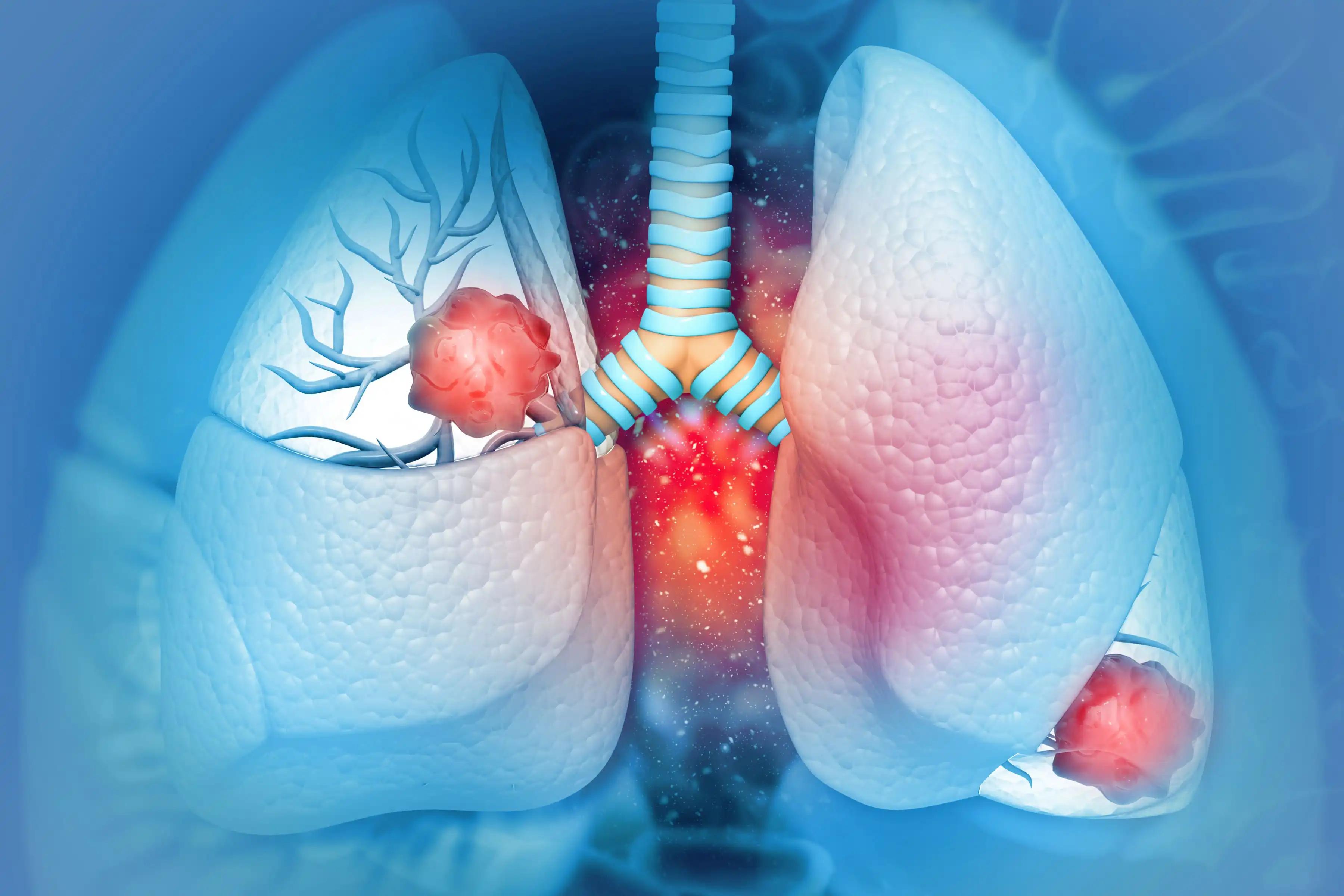KEY TAKEAWAYS
- The TACT phase 2 trial aimed to assess the efficacy and safety of tislelizumab+chemo in pts with stage III SCC.
- The primary endpoint were MPR and AEs.
- Tislelizumab+chemo, guided by predictive biomarkers showed promising effects in pts with SCC efficacy.
Standard care for resectable non-small cell lung cancer (NSCLC) involves 6 to 12 months of perioperative therapy combining chemotherapy (chemo) and immune checkpoint inhibitors. However, the optimal treatment for potentially resectable squamous cell lung carcinoma (SCC) is unclear.
Jianzhen Shan and the team assessed the efficacy and safety of a condensed 4-cycle perioperative treatment regimen with tislelizumab+chemo in patients (pts) with potentially resectable stage III SCC.
Researchers administered tislelizumab, albumin-bound paclitaxel, and carboplatin for up to 4 cycles intravenously to pts with potentially resectable stage IIIA-IIIB (N2) SCC and recorded the major pathologic response (MPR) and treatment-related adverse event (AE) incidences. Alongside, they evaluated safety, potential biomarkers, and efficacy prediction.
It was observed that among the 35 enrolled pts, 32 underwent surgery with R0 resection achieved in all cases. MPR was achieved in 24 pts, while pathological complete response (pCR) was observed in 14 pts. Additionally, radiographic objective response was noted in 31 pts. The 12-month and 24-month event-free survival (EFS) rates were 85.7% and 61.0%, respectively. AEs of grade 3 or 4 were experienced by 4 pts.
Tumor tissue-based next-generation sequencing (NGS) unveiled potential associations between several biomarkers and pathological response, including tumor neoantigen burden score, 18-gene expression profile score, CD8+ T cells, M1/M2 macrophages ratio, and interferon-gamma expression level. Furthermore, circulating tumor DNA (ctDNA) dynamics and concentration correlated with pathological response, with the presence of ctDNA at postoperative month 1 strongly predicting disease relapse.
Metagenomic sequencing in bronchoalveolar lavage fluid highlighted Streptococcus as the most abundant genus in the pCR group.
The results concluded that a condensed 4-cycle perioperative regimen combining tislelizumab and chemo exhibited promising efficacy and tolerable toxicities in potentially resectable stage III SCC. Also, specific biomarkers showed potential for predicting treatment efficacy, while preliminary exploration indirectly addressed the superior antitumor response mechanism in pCR pts.
This trial was supported by the Joint Project between the State Administration of Traditional Chinese Medicine and Zhejiang Provincial Administration of Traditional Chinese Medicine and the Natural Science Foundation of Zhejiang Provincial.
Source: https://pubmtislelizumabed.ncbi.nlm.nih.gov/38853265/
Clinical Trial: https://clinicaltrials.gov/study/NCT05024266
Shan J., Liu Z., Chen S., et al. (2024). “Optimizing perioperative treatment for potentially resectable stage III squamous cell lung carcinoma: promising results of a condensed four-cycle regimen with tislelizumaband chemotherapy.” BMC Med. 2024 Jun 10;22(1):234. doi: 10.1186/s12916-024-03462-4. PMID: 38853265; PMCID: PMC11163755.



